Rat Control of Portland
Welcome to Rat Control of Portland! We are Oregon rodent control specialists. Our specialty is rat and mouse control. Our special 32-point process is the single most effective method in the country for solving rodent problems inside homes and commercial buildings. We are not a typical pest control, we are a lot better. We are a Portland rodent exterminator company that traps rodents and can also treat rodents repeatedly with monthly or quarterly visits. However, if we can we will try to resolve your rodent situation the first time. We thoroughly inspect every component of your building and come up with a custom solution that will solve the rat or mouse problem. We physically trap and remove all rats or mice, a process that is completely effective and safe. The problem is soved forever, usually in a week or less. Click on our Portland Prices page to find out more about our prices for rat control work. Or give us a call any time to schedule an appointment, usually within the next day. We look forward to hearing from you.
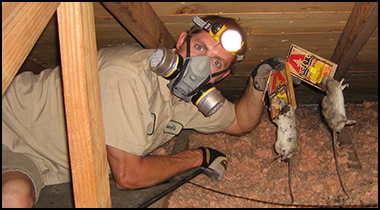
Portland Rat Trapping

Rodent-Proofing Repairs
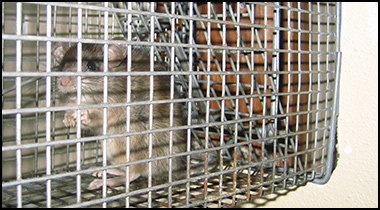
Humane Exclusion Options
Call 24/7 to discuss your rat problem.
Same-day or next-day appointments: 971-238-5325
32-point inspection of your property.
Written estimates for rat project.
Fully Oregon licensed and insured.
Rat-proofing repairs with steel.
100% of rodents trapped and removed.
Chewed wire and damage repair services.
Rat dropping cleanup and sanitation services.
Poison-free rodent control methods.
Our Service Range - 971-238-5325
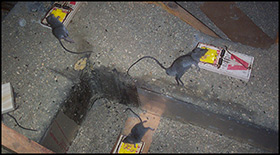
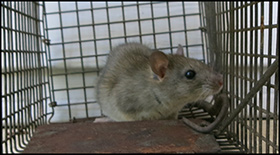
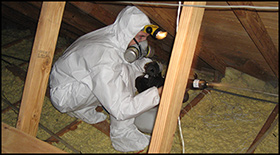
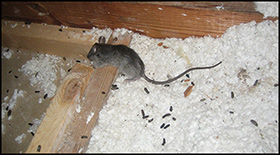
Rats seek shelter in areas where they are potentially safe from predators and where there is easy access to food. If you relocate any rats, chances are that the rats would die since they are not in familiar surroundings or their usual territory.
Rats have instincts that lead them to certain places where they would nest and have their young ones as well. If you were to catch some rats and release them in a new neighborhood, the rats, having grown accustomed to their previous surroundings, would be disoriented in a new location. In the time that they take to catch themselves and settle down, they may be caught by other predators or maybe even run over by a car or other moving vehicle.
Rats multiply in large quantities and relocating any may mean that you risk having the mother's being separated from its offspring. The offspring cannot survive for very long without its mother and the mother may become frantic searching for its babies. Both parent and babies may end up dying of starvation, dehydration and even exhaustion. Human relocation of rats may cause devastating psychological negative effects on these creatures.
Rats are very small creatures and the target for many predators. After all, they have their role to play in the food chain. Scents in a new environment may be unfamiliar to them and they may not know the scents that lead to danger and the scents that are not. As a result, they can place themselves in very sticky situations. Creatures mark their territories and rats may end up walking directly into another creatures' den without realizing it.
Should you have a problem with rats, you should hire professionals who are licensed to know what to do. They would know what the safest, and most humane methods are, for getting rid of rats. You do not want to risk causing more harm than good and you do not want to expose yourself unnecessarily to these creatures. There are many airborne diseases and parasites that can transfer on to you that has the potential to kill you if not treated in time. Rats blood, saliva, urine and feces, are all deadly to human when they themselves are infected with diseases.
When relocating rats, they may urinate and even poop inside of the vessel which you use to transport them in. If you use cages, you risk having them urinate inside of your vehicle. The rat may be so traumatized and try to escape from the cage that by the time you are ready to release it, it would be worn out and exhausted. If they have not been fed, they can also die from dehydration and starvation while in your care. Rats that live in residential areas may not know how to survive in the wilderness. Taking rats out of their natural territory and placing them elsewhere, is like giving them a doctor's certificate saying that their days are numbered. Seek the guidance of a professional before you take matters into your own hands.

